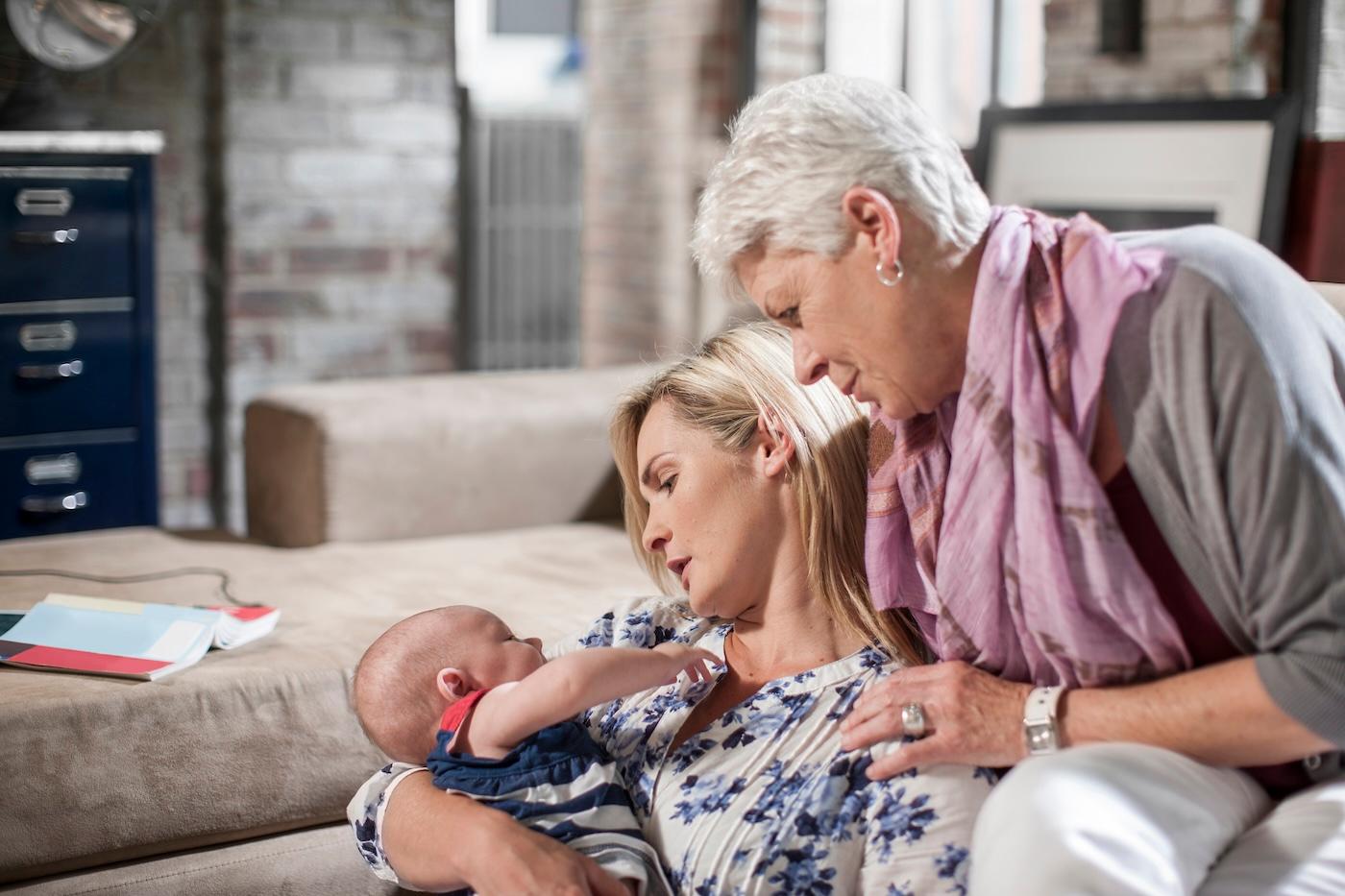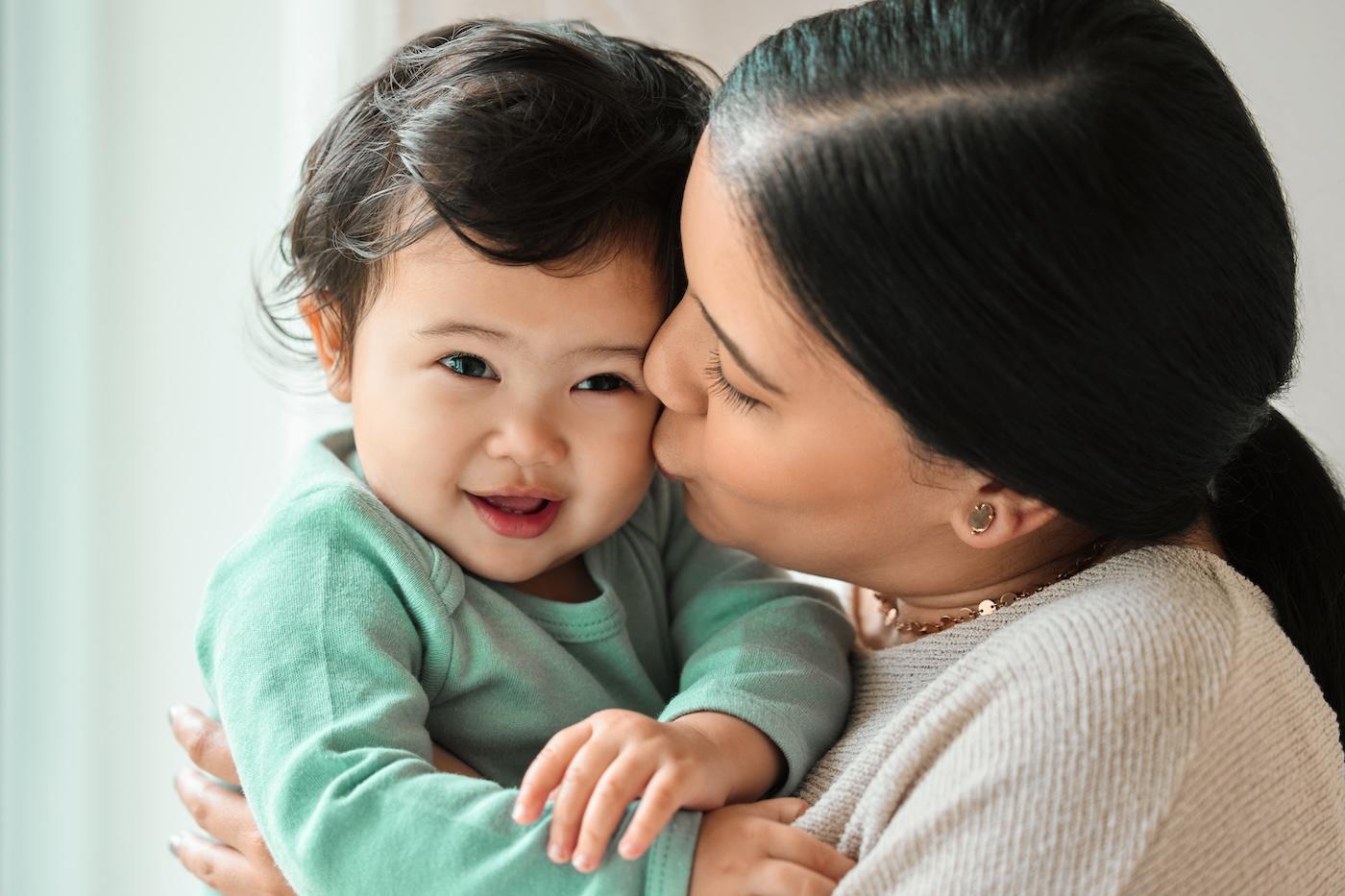PARENTS
What I Want All Mums to Know About Maternal Mental Health
Mamas, it's time to stop suffering in silence.

Written by
Happiest Baby Staff

This post was guest written by Jen Schwartz of Motherhood Understood.
When I was eight months pregnant, a close friend asked me, “Jen, are you worried about postnatal depression.” I quickly replied, “No! I am so excited to become a mother. That would NEVER happen to me.” As far as I was concerned, I was going to give birth to my son the old-fashioned way, fall deeply in love with him, breastfeed him for months like a champion, transform into the DIY domestic goddess I was always meant to be, and take him with me everywhere, while telling anyone who stopped us how AMAZING it was to be a mum.
During pregnancy, we fantasize about what motherhood will be like. We make plans. Tons of plans. Babies typically do not care about our plans. Do you know what else does not care about our plans? Maternal mental health disorders like postnatal depression and anxiety.
I laboured for almost 24 hours, pushed for two, and ultimately had a c-section. The day after my husband and I brought our son home, I started fantasizing about ways I could get hurt so I could check back into the hospital where I would never have to care for a baby. I waited nine months, thrilled to become a mum and now, I was plotting my escape. I cried all the time. Anxiety crippled me. I had no interest in the adorable baby boy in the next room. I hated breastfeeding and quit after five days, went on antidepressants for the first time, and with the exception of weekly therapy appointments, barely left the house for six months unless I was forced to.
There are three words I wish someone talked to me about while I was pregnant. My OB-GYN, the lactation consultant, the maternity floor nurse, a mum friend, anybody. Three words that would have made an incredible difference in my life when I became a mum: Maternal Mental Health.
I wish someone had said, “Your mental health matters—for you and for your baby. Your mental health might suffer pre- and post-pregnancy. This is not ‘normal,’ but it’s common. Let us discuss the signs to look for, risk factors, and where to go for the professional help needed to feel better. Let us arm you with this knowledge to make sure you are prepared.”
Doctors and nurses monitor our physical health closely throughout pregnancy, but where are the check-ins for our mental health? Hospitals offer tons of classes about how to take care of our babies, but where are the classes teaching us how to care for ourselves? Who is helping us manage our expectations so that if we do not bond with our baby right away, feel overwhelming sadness and/or anxiety, experience scary, intrusive thoughts, or other complicated, messy emotions, we recognise our mental health might be suffering rather than simply thinking we are failing?
Mums and their partners need to become their own maternal mental health advocates. This starts with understanding that maternal mental health disorders do not discriminate. They do not care about your race, ethnicity, how much money or education you have, how excited you are about your baby, or what your support system looks like.
I felt like I had lucked out with the ultimate new-mum set-up: a wonderful husband, supportive family, and even a baby nurse to help out the first two months. I still got postnatal depression and anxiety.
It is time to arm yourself with education. The best piece of advice (I wish I had been given and that I tell EVERY expecting and new mum I meet) is that it is so important to find the right therapist to help you navigate your experience. Finding a therapist who specializes in maternal mental health is essential for recovery. Had I known to do that right away, I would have gotten treatment sooner, gotten better faster, and missed fewer milestones during my son’s first year. If you do not know where to start, the Association for Post Natal Illness (APNI) has a helpline to call at 020 7386 0868 or email info@apni.org.
View your mental health the same way you would your physical health. Be open to medication, which can help pull you back up to the place you have the will to fight and get better. If you had the flu, you would see your doctor without thinking. You would follow her prescribed instructions without question. If you had diabetes, you would take your insulin daily without shame. Mood disorders such as postnatal depression and anxiety are real illnesses that need professional treatment. Often times, they require medication just like physical illnesses.
At first, I thought needing antidepressants made me weak and less of a mother, but I quickly learned the opposite was true. Taking the medication meant I was taking care of my health, which was the best way for me to take care of my baby. It was the combination of weekly therapy appointments and medicine (taken under the care of a psychiatrist) that led to my recovery.
We also need to understand that it is okay to not be okay. Motherhood will test you in ways nothing else can. You are allowed to struggle. You are allowed to fall apart. You are allowed to not be okay and say so without justification. You are allowed to feel like quitting. Do not keep the ugly, messy parts, and feelings to yourself because every single one of us has them and they do not make us bad mums. Treat yourself with kindness. Let yourself feel the feelings. Be gentle with yourself and try to sleep.
Ask for help. Consider hiring a postnatal doula. They can be more cost effective than baby nurses and are specifically there for you, the mother.
Delegate and tell others exactly what you need from them, including your partner, family, and friends. If it is exhausting to keep explaining yourself, tell one person and have them share with everyone else. When help is offered, the answer is always yes. If your partner offers to feed your baby so you can sleep, say yes. If your sister offers to come over to help with the laundry and dishes, say yes. If a friend offers to set up a meal train, say yes. If your parents offer to pay for any type of service, or a few hours of babysitting, say yes.
It is so easy to feel alone and isolated in motherhood. It takes time to find our people, especially when so many of us give birth and live hundreds of miles away from our own families. Look into all the different mum groups in your area and sign up for a few. Sometimes, just sitting in a group with other women in the exact same place as you are is the best way to find your people.
I learned to take care of my mental health the hard way, a lesson forced upon me by an illness I was clueless about. It should not have to be this way and I do not want it to be that way for you. For more from your people, connect with us on Instagram, join our Online Support Community, and visit Motherhood Understood.
The information provided here is not medical advice. It is provided for education only. If you or someone you know is experiencing depression or anxiety during-pregnancy or in the postnatal period, contact the Association for Post Natal Illness (APNI) at 020 7386 0868 or info@apni.org. If you are thinking of harming yourself or your baby, get help right away by going to the nearest A&E, calling the National Suicide Prevention Helpline UK at 0800-689-5652.
![[object Object]](https://cdn.sanity.io/images/301lhh0a/production/e84ca006808ae4c2b7ddbed0f759ac54dcef9f4d-270x480.jpg?w=640&auto=format&q=75&fit=max)
Jen Schwartz is the CEO and Founder of Motherhood Understood, an online platform, community, and story-sharing hub for mums affected by maternal mental health issues that gives permission to women who are not exactly enamored with their new role as mummy to be the most real and honest versions of themselves. She created Motherhood Understood to unmask the not so pretty sides of the role women are taught to believe comes naturally when they decide it is time to start a family, and only after learning how many women suffer in silence, ashamed, just as she did when she had postnatal depression and anxiety. Jen is a speaker, writer, spokesperson, influencer, consultant, and content creator whose work and commentary has been featured on popular websites like Forbes, Romper, The Mighty, Healthline, The Bump, Pop Sugar Moms, Scary Mommy, and more. Connect with her on Instagram and join her MU Mom Crew here.
Disclaimer: The information on our site is NOT medical advice for any specific person or condition. It is only meant as general information. If you have any medical questions and concerns about your child or yourself, please contact your health provider. Breastmilk is the best source of nutrition for babies. It is important that, in preparation for and during breastfeeding, mothers eat a healthy, balanced diet. Combined breast- and bottle-feeding in the first weeks of life may reduce the supply of a mother's breastmilk and reversing the decision not to breastfeed is difficult. If you do decide to use infant formula, you should follow instructions carefully.
SHARE THIS ARTICLE
PARENT PICKS
Bestsellers



















